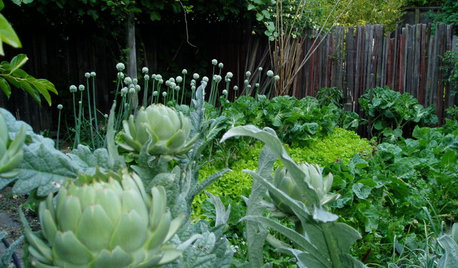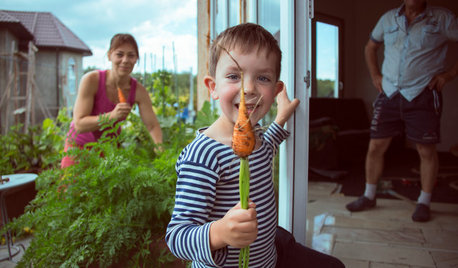UMass Extension Landscape Message May 10, 2013
claireplymouth z6b coastal MA
10 years ago
Related Stories

FUN HOUZZDoes Your Home Have a Hidden Message?
If you have ever left or found a message during a construction project, we want to see it!
Full Story
MONTHLY HOME CHECKLISTSYour May Checklist for a Smooth-Running Home
Sail through the rest of spring by spiffing up your home and getting down in the backyard with friends
Full Story
MOST POPULARIt’s Star Wars Day. May the Fourth Be With You
Fans of the sci-fi series are making special effects of their own all over the house. Have a look and share your own ideas for celebrating
Full Story
GARDENING AND LANDSCAPING10 Gorgeous Courtyards From Mod to Moroccan
Some have pools or fountains; some are awash only with greenery. These courtyards run the gamut of styles but have alluring looks in common
Full Story
FRONT YARD IDEAS10 Ideas for a Front-Yard Edible Garden Your Neighbors Will Love
Choosing attractive, well-mannered plants and sharing the bounty will go a long way toward keeping the peace
Full Story
GARDENING AND LANDSCAPINGWorld of Design: 10 Home Gardeners Show Us Their Sweet Summer Harvests
From New York to Tokyo, these gardeners have turned their yards, terraces and rooftops into places of bounty
Full Story
DECORATING GUIDES13 Home Design and Decor Trends to Watch for in 2013
It's predictions ahead as we find out what's on the radar of designers and makers for the coming year
Full Story
RUSTIC STYLEPhotos of 2013: The Most Popular Rustic Spaces
Filled with wood, stone and other nods to nature, these reader favorites radiate ruggedness and warmth
Full Story
MOST POPULARThe 25 Most Popular Photos Added to Houzz in 2013
See the newly uploaded images of kitchens, bathrooms, bedrooms and more that Houzz users really fell for this year
Full Story
DECORATING GUIDES10 Design Tips Learned From the Worst Advice Ever
If these Houzzers’ tales don’t bolster the courage of your design convictions, nothing will
Full StorySponsored
More Discussions







rockman50
Related Professionals
Tempe Landscape Architects & Landscape Designers · Hershey Landscape Architects & Landscape Designers · Towson Landscape Architects & Landscape Designers · Woburn Landscape Contractors · Berkley Landscape Contractors · East Chicago Landscape Contractors · Eureka Landscape Contractors · Florham Park Landscape Contractors · Old Saybrook Landscape Contractors · Pahrump Landscape Contractors · Palos Verdes Estates Landscape Contractors · Saint John Landscape Contractors · Issaquah Decks, Patios & Outdoor Enclosures · Pataskala Decks, Patios & Outdoor Enclosures · Pittsburgh Decks, Patios & Outdoor Enclosures